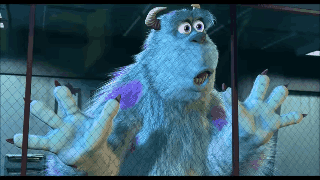Vikings – S5E17 – The Most Terrible Thing
Posted on January 10, 2019 by Sarah de Poer in Featured, Vikings – S5 // 3 Comments
Previously on Vikings, “The Buddha”
When the Vikings Season 5B tagline said “Descend into Darkness,” nobody could have anticipated the events in “The Most Terrible Thing.” After 16 episodes of little forward motion in Floki’s Iceland plot, viewers hoped for progress but joked that the whole storyline should be put out of its misery. This week, series writer Michael Hirst teaches us once again to be careful what you wish for when Iceland’s worst timeline unfolds with Kjetill Flatnose murdering Eyvind’s entire clan and Aud committing suicide. Building on episode 12’s reference to Hamlet, Iceland’s trajectory resembles a Shakespearean tragedy, but, not unlike Game of Thrones’ infamous Dorne debacle, far-flung locales often struggle with maintaining relevance. Despite copious historical potential, Iceland seems to be teetering over that same drain.
The foundation was solid—Eyvind, Kjetill, and Aud the Deep-Minded are fascinating historical legends—but perhaps the complexities of Iceland’s founding would have been better as the Vikings spin-off series. Hirst’s challenge now must be defining a narrative arc and a valuable lesson so viewers don’t feel cheated of their attention, and I don’t mean like murdering Sigurd Snake-in-the-Eye to show how Ivar is still terrible. Granted, if you have Adam “The Edge” Copeland on hand, abject savagery is its own form of entertainment. But, why not populate Iceland with a wave of disposable unknowns first, then start over with well-known figures? Aud especially seems like such a loss, when the real Aud lived a long life, captained her own vessel, and is credited with bringing Christianity to Iceland. At this point it’s hard to imagine what narrative turn could save Floki’s retirement.
Otherwise, “The Most Terrible Thing” is constructed beautifully thanks to director Helen Shaver and its many talented editors and designers. Scenes transition cleverly with Rollo’s war cry from Kjetill’s revenge to Bjorn’s revenge preparations and with mirrors from Gunnhild’s scheming to Judith’s ruminations. Each major scene is arranged flawlessly to maximize mood, from the claustrophobic Iceland murders to Alfred and Judith’s sunlit confrontation, Hvitserk’s chilly meditations to Aud’s misty leap. The costuming and set design are particularly notable in Gunnhild’s golden dress, Harald’s driftwood throne, Floki’s cloak draping into the hillside, and Alfred’s farewell to Aethelred.
Iceland
Eyvind’s family shack is full of holes and rain and he tearfully welcomes them with thanks, swearing that he’s changed. Once the weather calms down, Floki says it’s time to go. Kjetill agrees with a weird tone, turning to call Rafarta a witch and a murderess. Suddenly random cloaked men hold Floki and Eyvind back, and I have no idea who they are supposed to be or where they came from. The ramshackle house cinches us inside with them while Kjetill cuts through everyone but Eyvind and Helgi, leaving them outside in the rain overnight. The claustrophobic setting is terrifying, but what is going on with the masked hit squads this season?
Floki is ashamed that Kjetill fooled him and tries to convince him not to kill Helgi. Kjetill shrugs that the gods made them that way and mockingly agrees that if he spared Helgi, it would make them all feel a little better. The next morning he stands like an elemental force, growling Rollo’s war cry as a song. Eyvind faces death bravely like the Viking he is and is beheaded. Helgi begs Floki for understanding—he was always on Kjetill’s side. Floki acknowledges that Kjetill knows, nodding minutely in goodbye. Jack McEvoy finishes his role like a champ, shifting from desperate to resigned as Helgi faces his father’s corpse and Kjetill. A row of heads on pikes is all that remains. When they return to the main camp, Floki tells Aud what happened. He apologizes for bringing them, sadly comprehending that she never saw the gods. The distraught young woman battles through the weather to the cliffs and jumps into the waterfalls as Floki calls out, his cloak blending into the grass.
Wessex
“The king must be prepared to do the most terrible things, things against all conscience, if he wants to survive.”
Alfred stumbles in to Aethelred’s funeral and inquires who is being buried. Judith puts on a good show of bewilderment, saving her some time as he bids his brother a sincere farewell. Immediately afterward, Judith sends Ethelfled packing like the Cuthred-relating, throne-lusting trollop she is. Judith is making a lot of fast, decisive moves, and our clue as to why might be her topless self-examination in the mirror. When Elsewith inquires what she’s doing, Judith only says, “It really doesn’t matter.” Perhaps Judith is concealing a deadly ailment, like cancer, which would certainly explain her devil-may-care confession in the next scene. Alfred doesn’t seem to be in a hurry to arrest her, but the plot gods will inevitably demand retribution for filicide.
The dinner scene is singularly striking, as misty sunlight filters in on Judith’s gunmetal dress, sewn with angular layers to resemble armor, while Alfred’s own black velvet tunic absorbs the light. Judith tells Alfred that while he was sick, she had to deal with the traitors including Aethelred. She admits to poisoning him, causing Alfred to flip over the dinner table and trash the entire room. After he finally wears himself out like a raging kitten, Judith chews him out for acting like an ordinary person, saying kings must do terrible things. Things like naming Ubbe to the head of his army against approaching Danish Vikings and keeping his blushing boy-man self on the throne where it belongs, advice courtesy of Torvi. In a land of underhanded manipulators, straight shooters like Ubbe and Torvi are exactly the balm Alfred needs.
York
Kjetill’s revenge song transitions to Bjorn and Gunnhild hyping up Harald’s army. Harald admires Gunnhild taking all comers in training, which Bjorn pointedly interrupts with a plan to surprise Ivar with a winter invasion, claiming Ragnar advised it in a dream. Harald counters that Ragnar seemed to name Ivar as successor and his own arrangement to be king after Ivar’s death. Bjorn smoothly offers the same deal, throwing in his intended wife Gunnhild, if she consents of course, for additional temptation. Harald agrees.
Gunnhild catches Harald stalking her, wondering why a king would be skulking around. He brings up their past exchange about the fates, saying nobody ever changes and the gods have brought them together. She says coolly that if he intends to be king of Norway, she wants to be queen. The framing of this scene is stunning, with her idly brushing her hair in three mirrors while he calculates behind her—the mirrors invite us to question which impression of her we should believe: Is she ambitious, is she curious, or does she hope to lure Harald into making a hasty mistake that will help Bjorn?
When Bjorn questions her about it, Gunnhild freely admits she knows Harald’s feelings. Bjorn judges that Harald loves being in love (true story), claiming he himself has never actually been in love (Uh, þorunn??). He vulnerably worries aloud that she might not be in love with him or might want to be Harald’s queen. Gunnhild again points out his position: he’s a legend, but he’s afraid? That fame only means he’s alone with his fear. Saying she respects him even more for his admission, she coaxes him to admit he loves her. Kudos to Alexander Ludwig for bringing the struggle home as Bjorn finally spits it out. The empathy is so real for someone who’s been burned by tragedy, loss, and his own wanderlust letting himself fall, yet danger remains as Harald twists Astrid’s necklace on a driftwood throne.
Kattegat
Ivar holds a Thing, saying he wants everyone to feel involved… however, nobody will actually be involved because he knows best. Regular people don’t need to be bothered with making decisions when they could instead be spending energy ratting out “traitors” like their own family members and hopping on board with Ivar’s particular brand of proto-fascism. Hvitserk watches as Kattegat’s people turn into a chanting mob. Afterwards he meditates happily at his Buddha altar while Ivar sulks in bed. Freydis counsels him to be a merciful god. Ivar wakes Hvitserk and Thora up “concerned” that Hvitserk has no official role and commands him to visit Olaf the Stout, or, Thora can be burned alive. So he goes, leaving Thora in Kattegat, because Plus One is apparently stupid. Considering that Thora came into the series asking him to run away with her, I have no idea why she now has to stay, other than to get fridged like the other two Thorruns. Ugh.
Vikings S5E17 Review Score
-
Plot – 6/106/10
-
Dialogue – 7/107/10
-
Performances – 8.5/108.5/10
-
Action – 7/107/10
"The Most Terrible Thing"
Starring: Katheryn Winnick, Gustaf Skarsgård, Georgia Hirst, Jonathan Rhys Meyers, Alexander Ludwig, Alex Høgh Andersen, Jordan Patrick Smith, Peter Franzén, Marco Ilsø, Jennie Jacques, Adam Copeland, Kris Holden-Ried, Leah McNamara, Jack McEvoy, Róisín Murphy, Dean Ridge, Alicia Agneson, Ferdia Walsh-Peelo, Donna Dent, Ragga Ragnars, Scott Graham, Elijah Rowen, Ann Skelly, Eve Connolly | Director: Helen Shaver | Writer: Michael Hirst



Still.trying to figure out, where this storyline is going. Hirst’s story decisions are getting a little bit… out of hand? It wouldn’t surprise me, if at the end of season 6, he reveals that most of it was in Ragnar’s head or game between the pagan gods and the Christian god.
Yes, I’m waiting to see if there’s some kind of twist he’s hiding about Iceland to justify this or if he’s just wiling out.
Sarah Powers Based on the other storylines, I am leaning towards the willing out part. But I hope this is not case. It intrigued me, when Hirst said, that Vikings could go on, although he sounded like GRRM… Anyway, I am counting on a great end to the show. It deserves it and so much more. The characters are truly (for lack of a better word) diverse. Different shades of grey and flawed. I especially appreciated this with the women. Even though I never get why some of them die or disappear the way they do….